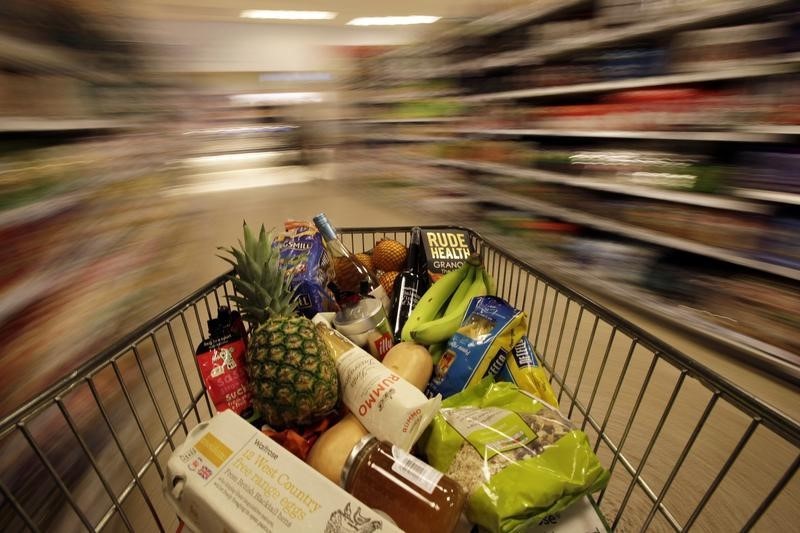By Ana Nicolaci da Costa and Andy Bruce
LONDON (Reuters) - British consumer prices rose in July and core inflation hit a five-month high, triggering market bets on the Bank of England moving slightly faster than previously expected once it starts raising interest rates.
The timing of the first hike remains unclear, however, comments from economists suggested.
Tuesday's data showed annual consumer price inflation unexpectedly ticked up 0.1 percent in July from zero and the underlying measure - which strips out energy, food, alcohol and tobacco - rose to its highest level since February.
The Office for National Statistics said the rise was helped by smaller discounts to clothing and footwear prices compared to this time last year, a factor economists said would be temporary.
But sterling rallied and British government bonds fell, indicating a slightly steeper path for future British interest rates.
Economists were split on the implications of the data for BoE policy.
"Today's news on core inflation doesn't offer much comfort to the doves (in the BoE's rate-setting committee)," said Sam Hill, senior UK economist at RBC Capital Markets, adding that the policy debate would be lively now that the rate-setter vote was split.
Analysts at Barclays (LONDON:BARC) said the data would not significantly shift the narrative for policymakers, and that the rise in core inflation might reverse in August.
Markets recently pushed back expectations for the timing of Britain's first rate hike in years after only one member of the Monetary Policy Committee voted for an increase in August, against expectations that two or more would do so.
But since then, rate-setter Kristin Forbes has highlighted the dangers to the economy of prolonged, record low borrowing costs.
Given that rising sterling and falling commodity prices are curbing inflation, BoE officials have said they are increasingly looking at core inflation to assess when to start tightening policy.
While low inflation has boosted Britons' purchasing power, it has also made it more difficult for the BoE to exit its ultra-easy monetary policy of recent years.
Core inflation rose to 1.2 percent in July from 0.8 percent in June.

Separate data showed house prices rose 5.7 percent in the year to June, up from 5.6 percent in May.
(editing by John Stonestreet)